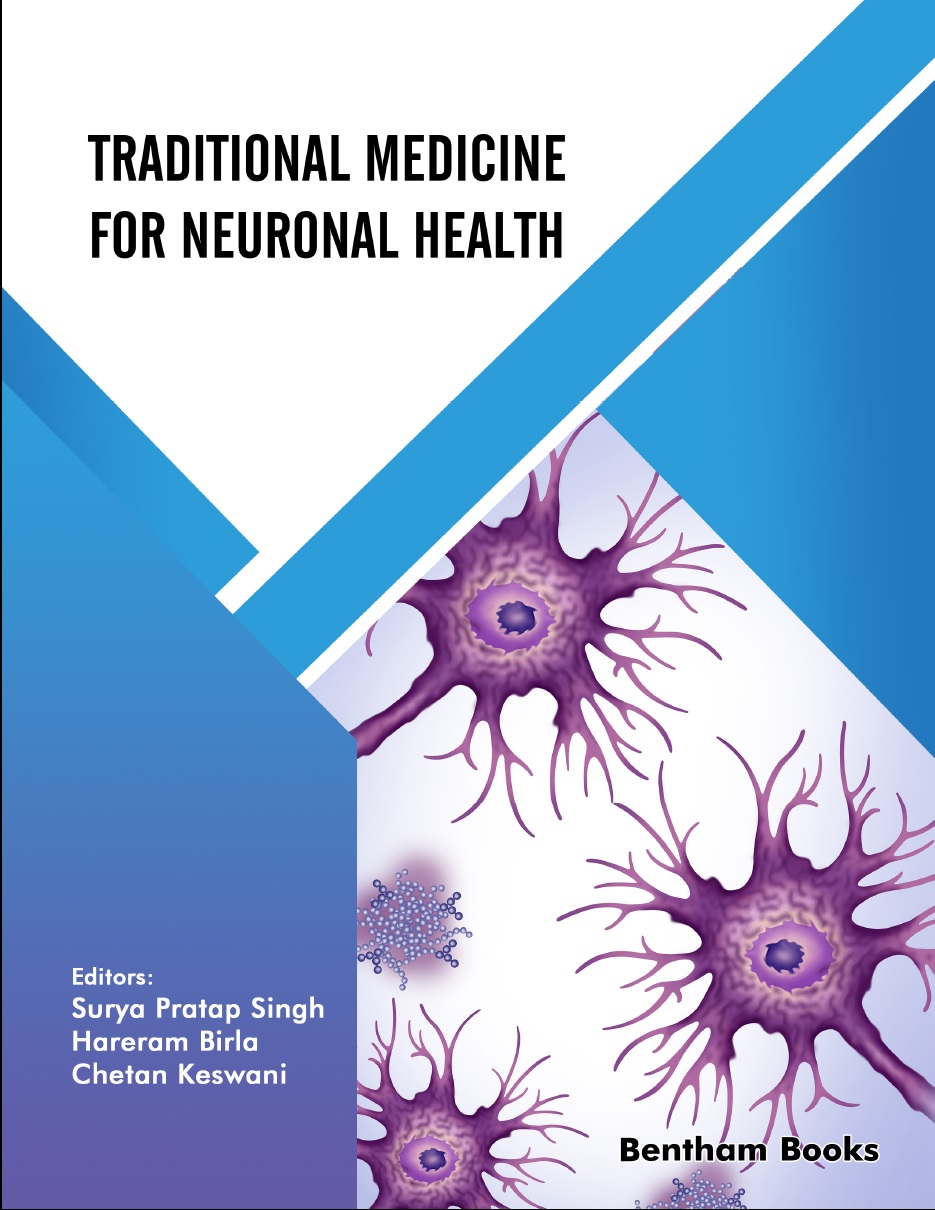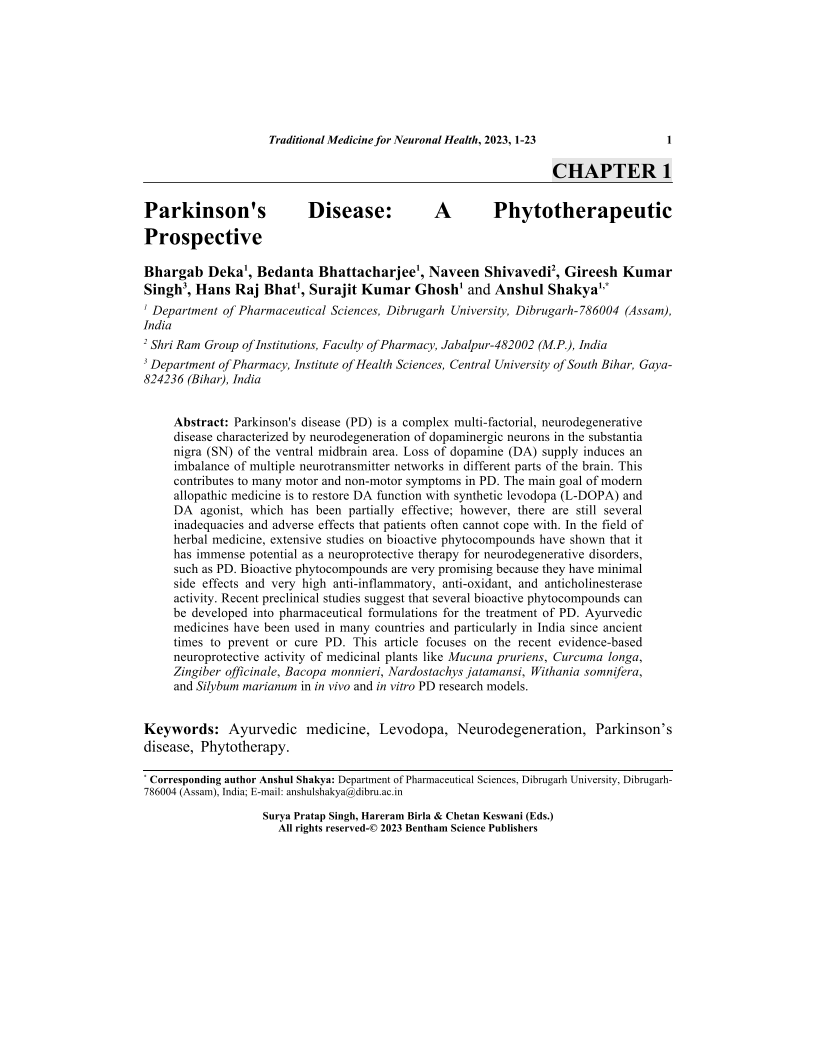Parkinson's Disease: A Phytotherapeutic Prospective

- Authors: Bhargab Deka1, Bedanta Bhattacharjee2, Naveen Shivavedi3, Gireesh Kumar Singh4, Hans Raj Bhat5, Surajit Kumar Ghosh6, Anshul Shakya7
-
View Affiliations Hide Affiliations1 Department of Pharmaceutical Sciences, Dibrugarh University, Dibrugarh 786004 (Assam), India 2 Department of Pharmaceutical Sciences, Dibrugarh University, Dibrugarh-786004 (Assam), India 3 Shri Ram Group of Institutions, Faculty of Pharmacy, Jabalpur-482002 (M.P.), India 4 Department of Pharmacy, Institute of Health Sciences, Central University of South Bihar, Gaya-824236 (Bihar), India 5 Department of Pharmaceutical Sciences, Dibrugarh University, Dibrugarh-786004 (Assam), India 6 Department of Pharmaceutical Sciences, Dibrugarh University, Dibrugarh-786004 (Assam), India 7 Shri Ram Group of Institutions, Faculty of Pharmacy, Jabalpur-482002 (M.P.), India
- Source: Traditional Medicine for Neuronal Health , pp 1-23
- Publication Date: March 2023
- Language: English
Parkinson's Disease: A Phytotherapeutic Prospective, Page 1 of 1
< Previous page | Next page > /docserver/preview/fulltext/9789815040197/chap1-1.gif
Parkinson's disease (PD) is a complex multi-factorial, neurodegenerative disease characterized by neurodegeneration of dopaminergic neurons in the substantia nigra (SN) of the ventral midbrain area. Loss of dopamine (DA) supply induces an imbalance of multiple neurotransmitter networks in different parts of the brain. This contributes to many motor and non-motor symptoms in PD. The main goal of modern allopathic medicine is to restore DA function with synthetic levodopa (L-DOPA) and DA agonist, which has been partially effective; however, there are still several inadequacies and adverse effects that patients often cannot cope with. In the field of herbal medicine, extensive studies on bioactive phytocompounds have shown that it has immense potential as a neuroprotective therapy for neurodegenerative disorders, such as PD. Bioactive phytocompounds are very promising because they have minimal side effects and very high anti-inflammatory, anti-oxidant, and anticholinesterase activity. Recent preclinical studies suggest that several bioactive phytocompounds can be developed into pharmaceutical formulations for the treatment of PD. Ayurvedic medicines have been used in many countries and particularly in India since ancient times to prevent or cure PD. This article focuses on the recent evidence-based neuroprotective activity of medicinal plants like Mucuna pruriens, Curcuma longa, Zingiber officinale, Bacopa monnieri, Nardostachys jatamansi, Withania somnifera, and Silybum marianum in in vivo and in vitro PD research models.
-
From This Site
/content/books/9789815040197.chap1dcterms_subject,pub_keyword-contentType:Journal -contentType:Figure -contentType:Table -contentType:SupplementaryData105

